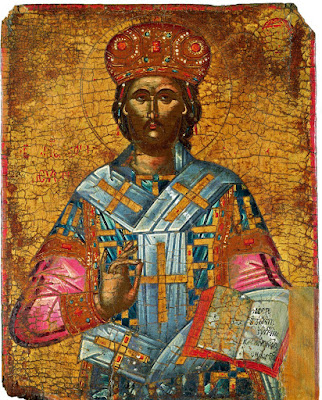Note: If you wish to receive, via e-mail, (1) my weekly newsletter or (2) daily copies of these posts, notify me at rrbates1951@gmail.com and indicate which you would like. I promise not to share your e-mail address with anyone. To unsubscribe, send me a follow-up email.
Sunday
Today is “Christ the King Sunday,” which is “a feast in the liturgical year which emphasizes the true kingship of Christ” (Wikipedia). I have problems with the metaphor of Christ as king– I suspect Jesus himself would have balked at the description–but if I understand it to mean that Jesus functions as our supreme guide and inspiration, then it somewhat works. Poet Malcolm Guite makes it clear that he sees Jesus as such in “Everything Holds Together,” a sonnet he wrote for the festival.
Sadly I missed Guite when he visited Sewanee this past month as I was in Slovenia. He is one of my favorite religious poets and I would have loved to have met him. In his sonnet he invokes a God that runs the gamut from galaxies to quarks. (I love how stellar sparks of light become “secret seeds that open every spring.”) Eucharistic Prayer C in the Episcopalian Book of Common Prayer has a line that I love and that may have contributed to the poem:
At your command all things came to be: the vast expanse of interstellar space, galaxies, suns, the planets in their courses, and this fragile earth, our island home. By your will they were created and have their being.
God can become too small when invoked in ideological battles. As Anne Lamott has wisely said, “You can safely assume you’ve created God in your own image when it turns out that God hates all the same people you do.” If, on the other hand, we see ourselves created in God’s image, then the ego falls away and the immensity of the universe opens within us and before us. Our defensive boundaries crumble in the presence of a God that is not only bigger than we think but bigger than we can think. Here’s the poem:
Everything holds together, everything,
From stars that pierce the dark like living sparks,
To secret seeds that open every spring,
From spanning galaxies to spinning quarks,
Everything holds together and coheres,
Unfolding from the center whence it came.
And now that hidden heart of things appears,
The first-born of creation takes a name.
And shall I see the one through whom I am?
Shall I behold the one for whom I’m made,
The light in light, the flame within the flame,
Eikon tou theou, image of my God?
He comes, a little child, to bless my sight,
That I might come to him for life and light.
In his letter to the Colossians (1:15), Paul uses the phrase, “eikon tou theou tou aoratou,” meaning “the express image of the invisible God.” In other words, if Christ is described as king, it is because he came as close as anyone ever has (or so Christians believe) to grasping, articulating, and living out our divine potential. Jesus connected, in ways unfathomable to us, to that which holds everything together, to the “hidden heart of things.” Or, to borrow from Dante, to “the Love that moves the sun and the other stars.”
In Guite’s words, Jesus is “the one through whom I am” and “the one for whom I’m made.” Light in light and flame within flame, Jesus comes as “a little child to bless my sight.” He does so that we might, in turn, come to him “for life and light.”
Becoming subjects of a king is one way of expressing this journey. I prefer Guite’s images, however, which see us as a light in the light that is in the light and as a flame within the flame that is within the flame.


